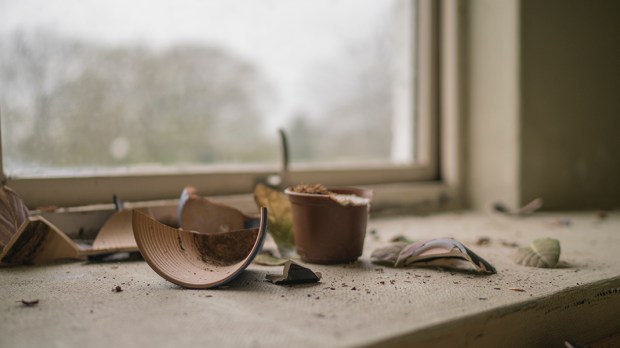Lenten Campaign 2025
This content is free of charge, as are all our articles.
Support us with a donation that is tax-deductible and enable us to continue to reach millions of readers.
When I break something, I scramble to fix it as quickly as possible. I scrape together the pieces, grab the super glue, and frantically mash the broken shards back together. I rush to apologize, to explain myself, justify the error. I insist on discussing disagreements before I have my thoughts and emotions under control, or really understand them. When given a project, I recklessly throw myself into it without first patiently understanding the options, gathering advice, and thinking through various scenarios. At my best, I’m decisive and motivated. At my worst, I’m impulsive and rash, like a bull in a china shop.
There’s a natural human inclination that psychologists have identified called “bias toward action.” When confronted with a challenge or a problem, we immediately want to do something — anything — to tackle it. We want to help, or feel like we’re helping, to fix it. We feel guilty if we don’t act right away.
When unsure about the path forward, we favor action over inaction, even feeling compelled to act when we aren’t at all certain about the outcome of our actions.
We act first and think about it later. It’s a formula for making a mess.
Later, though, we shrug it off by claiming we had to do something. Who could have guessed it would be the wrong choice? Half the time we don’t even bother to analyze whether our actions made the problem better or worse. We simply move on. We act.
When I fall prey to this bias, it’s a symptom of pride, the need to be in control, the need to be the “fixer.”
As a parent, I’ve felt compelled to punish my children even when I’m not confident who needs to be punished or what’s appropriate to the crime. I’m driven to solve their interpersonal problems even when the problems have no solution or it’s healthier to step back and allow them to sort it out themselves. I struggle to sit back and do nothing, which makes me feel negligent, like I’m not parenting actively enough.
I’ve been tempted by bias to action in my vocation as a priest, too. Churches are complicated communities. I used to think that when people quit the church, didn’t like me, or caused problems with other parishioners, that if I acted, to say or do the right thing, then I could fix it. Sometimes my intervention succeeded, but left me exhausted. Often, that same person would cause me headaches later.
I’ve learned over the years that you can’t fix everything and it isn’t a failure to let people have their space.
This holds true for personal relationships as well. Relationships break. It might be no one’s fault. It might be the other person’s fault. It might be my fault. If I fire off an accusatory or self-pitying text, or insist on a confrontation, I’m only making it worse. If I push for a reconciliation and the other person isn’t ready, the efforts go nowhere. It takes time and patience to find the best path toward healthy resolution of conflict.
We can’t fix the world. We shouldn’t have to. In the end, bias toward action leaves us worn out. This doesn’t mean passivity is superior. It means restraint is its own form of action. Restraint gives equal consideration to all options, including inaction. The benefit is more effective decision-making and positive outcomes.
The hardest action to take is no action at all. Waiting patiently is a form of strenuous effort particularly when everyone around is urging action.
When considering my own irrepressible need to act, I ask myself these questions…
- Am I just trying to let myself off the hook? Regardless of the outcome, at least I can say I tried my hardest.
- Is the bias healthy? It may be a retreat back to my pride to think I can or should fix everything. It’s an unwillingness to be patient, to wait and trust.
- Does my action make things worse? Looking back on some situations, it’s obvious to me that I should have kept quiet and allowed the scenario to run its course. In the future, I need to be more willing to quietly observe, or at the very least consider my course of action more carefully, instead of recklessly stepping into the fray.
It’s an interesting topic to consider during Advent, the value of patience, waiting, and cultivating hopeful expectation. From where I sit, life is joyful and the future is bright even if it takes some time to see the light at the end of the tunnel. But it’s okay to be momentarily in the dark.
If we watch and pray, it doesn’t mean we’ve given up. Quite the opposite. It means we know God is at work, and if we trust him and act in accordance to his will, whatever it is we’ve broken he’s able to put back together. Even better than new.


